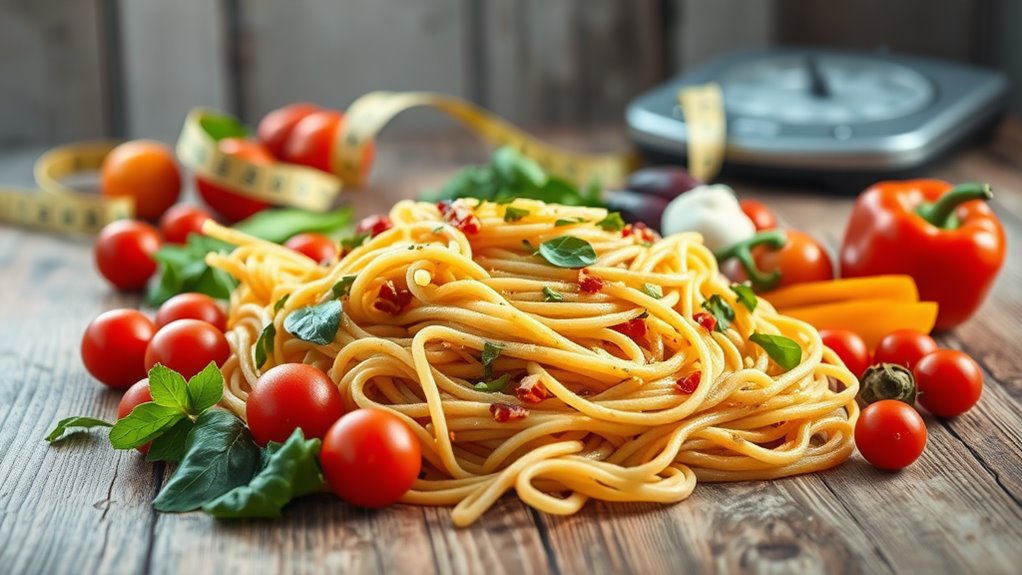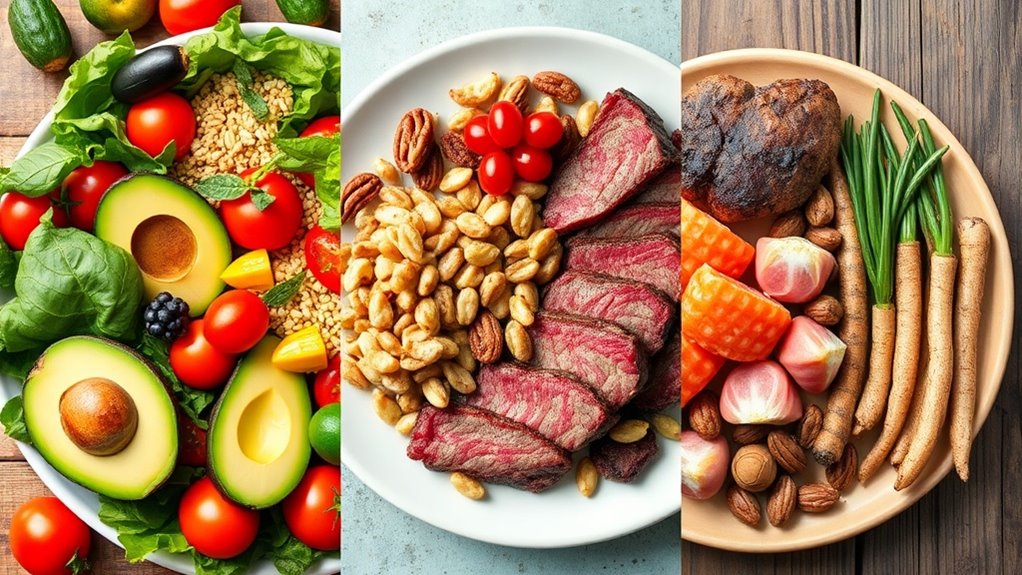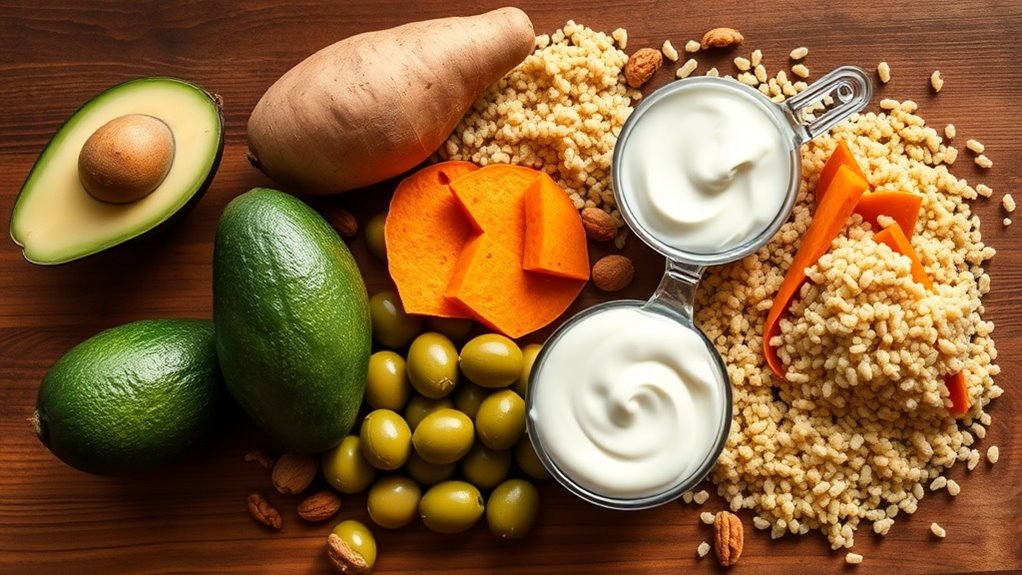Yes! Eating Carbs Can Help You Lose Weight-Here’s How!
You might think cutting carbs is the key to weight loss, but that’s not necessarily true. In fact, incorporating the right types of carbohydrates into your diet can support your weight loss goals. By choosing whole, unprocessed options and timing your intake wisely, you can actually enhance your results. Curious about how to make carbs work for you? Let’s explore the strategies that can lead to a healthier, more balanced approach.
Understanding Carbohydrates and Their Role in Weight Loss
While many people view carbohydrates as the enemy in their weight loss journey, understanding their true role can actually help you achieve your goals. Carbs are your body’s primary source of energy, fueling everything from workouts to daily tasks.
When you cut them out completely, you might feel sluggish and deprived, which can lead to cravings and bingeing later on.
Instead of fearing carbs, think about incorporating the right balance of them with healthy fats. Both play vital roles in your nutrition. Carbs provide quick energy, while fats help keep you satisfied and support overall health. Moderation and quality of carbs can maintain stable blood sugar levels, making it easier to control hunger and support weight loss.
Embracing a mix of whole grains, fruits, and vegetables can keep you feeling energized and fulfilled.
Choosing the Right Types of Carbs for Optimal Results
Not all carbohydrates are created equal, and choosing the right ones can significantly impact your weight loss journey. Focus on whole, unprocessed carbs like fruits, vegetables, whole grains, and legumes. These foods are packed with fiber, which helps you feel full longer and keeps your digestion on track.
Avoid refined carbs found in sugary snacks and white bread; they can spike your blood sugar, leaving you hungry and craving more. Instead, embrace brown rice over white, quinoa instead of pasta, and fresh fruits instead of fruit juices.
When you fill your plate with these nutrient-dense options, you not only nourish your body but also support your weight loss goals. Nutrient-dense foods allow you to eat more while still losing weight, making it easier to achieve your health objectives.
Plus, you’ll feel part of a community that values health and mindful eating. Remember, it’s about making choices that align with your journey—so you can thrive together with others who share your passion for wellness!
Timing Your Carbohydrate Intake for Maximum Effectiveness
To maximize the effectiveness of your carbohydrate intake, it’s crucial to pay attention to when you eat them. Timing can make a big difference in how your body utilizes carbs.
For instance, consuming carbs before a workout can fuel your energy levels, helping you perform better and burn more calories. Post-workout, your body craves nutrients, so eating carbohydrates then can aid in recovery and replenish glycogen stores.
Consider spreading your carb intake throughout the day rather than loading up at one meal. This keeps your energy steady and prevents cravings.
Eating carbs earlier in the day can also support better metabolism, while reducing them in the evening may help you sleep better and manage weight. Balancing carb intake with proteins and fats is essential for optimal energy levels.
The Importance of Portion Control and Balance
After you’ve mastered the timing of your carbohydrate intake, the next step is understanding portion control and balance.
It’s crucial to recognize that not all carbs are created equal, and how much you eat plays a significant role in your weight loss journey. By practicing portion control, you can enjoy your favorite foods without overindulging.
Think about filling half your plate with vegetables, a quarter with whole grains, and the remaining quarter with lean proteins.
Balance is key, too. You don’t have to eliminate carbs; instead, focus on including a variety of nutrient-dense options. This way, you’ll keep your meals satisfying and nourishing. Incorporating high-volume, low-calorie foods can help you feel full without consuming excess calories.
When you pay attention to both portion sizes and food variety, you’ll feel more energized and less deprived.
Incorporating Carbs Into a Sustainable Weight Loss Plan
Incorporating carbs into a sustainable weight loss plan can be a game-changer when you focus on the right choices. Instead of cutting carbs completely, embrace whole grains, fruits, and vegetables.
These foods not only satisfy your cravings but also provide essential nutrients and fiber, keeping you full longer. Pairing carbs with protein and healthy fats can further enhance your meals, creating a balanced plate that fuels your body and satisfies your taste buds. Additionally, ensuring that you prevent metabolic adaptation through strategic eating can help maintain your weight loss momentum.
Don’t shy away from enjoying your favorite carb-rich foods in moderation. Think of pasta, rice, or bread as part of a wholesome meal rather than the enemy.




